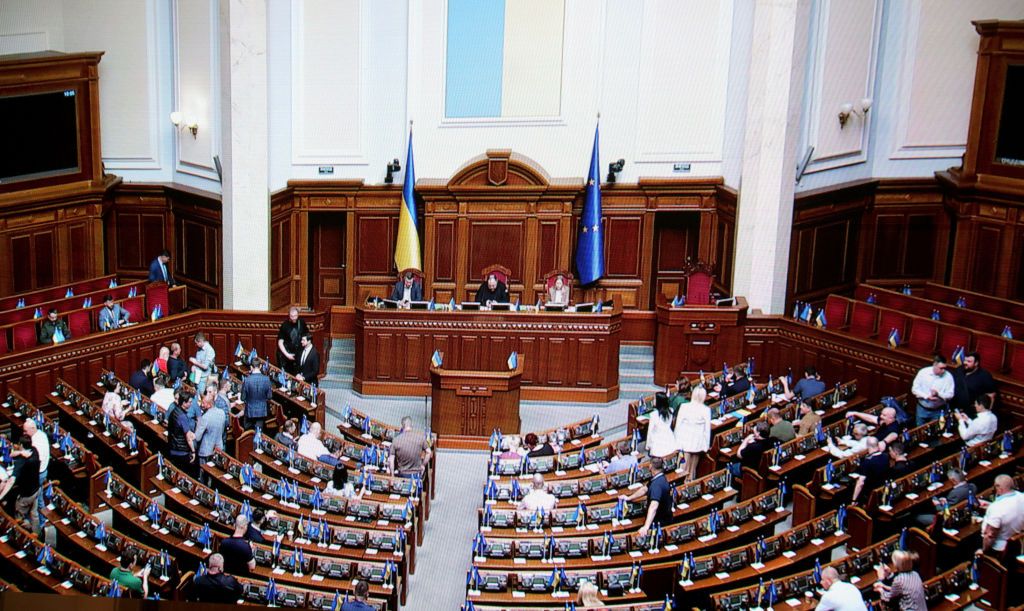The Ukrainian parliament recently passed a bill banning activities of religious organizations connected to Russia, with 265 lawmakers supporting it in its second and final reading. The bill could effectively prohibit the activities of the Ukrainian Orthodox Church of the Moscow Patriarchate (UOC-MP), which has been accused of links and sympathies to Russia throughout the full-scale war. The law will come into force 30 days after its publication, but UOC-MP communities will have nine months to fully break ties with the Russian church. The legislative process was surrounded by controversies, with opposition lawmakers blocking the parliament’s rostrum last month after the governing party did not bring the issue to the floor.
The bill was initially registered in the parliament in January 2023, shortly after extensive searches by security authorities uncovered Russian propaganda, Russian passports, and xenophobic literature at the church’s premises. The parliament supported the bill in the first reading in October 2023, and the latest passing of the bill in its final reading shows a significant step towards severing ties with Russia-linked religious organizations in Ukraine. However, the law has faced opposition, with 29 lawmakers voting against it, including members of the pro-Russian Opposition Platform — for Life parliamentary group and some members of the governing party Servant of the People party.
The Ukrainian Orthodox Church has stated that it has always acted within the framework of Ukrainian legislation and claimed it had severed ties with the Russian Orthodox Church. However, this declaration has been widely disputed in Ukraine as a mere symbolic step that does not adhere to proper procedures and has been boycotted by the Russian church. In response to these developments, Patriarch Kirill of Moscow, the head of the Russian Orthodox Church, presented an order titled “The Present and Future of the Russian World,” which emphasizes the spiritual and moral aspects of Russia’s military operation against Ukraine. This highlights the deep-rooted connection between religion and politics in the ongoing conflict between Ukraine and Russia.
The passing of the bill banning Russia-linked religious organizations in Ukraine reflects the country’s efforts to assert its independence and sovereignty from Russian influence. It also demonstrates the complexities of the relationship between religious institutions and political entities in the context of war and conflict. The controversy surrounding the legislation, including opposition from lawmakers and claims of symbolic gestures by the UOC-MP, underscores the challenges faced in promoting national unity and autonomy while navigating historical and cultural ties to neighboring countries. The implementation of the law and the response from religious leaders and communities will be crucial in shaping the future of religious freedoms and affiliations in Ukraine.
As Ukraine continues to grapple with the ongoing conflict and external pressures, the role of religion in society and politics remains a contentious issue. The passing of the bill to ban Russia-linked religious organizations raises questions about the balance between religious freedom and national security, as well as the implications for interfaith relations within the country. Moving forward, it will be essential for all stakeholders to engage in dialogue and reconciliation efforts to address the divisive nature of the legislation and work towards building a more inclusive and peaceful society. By supporting independent journalism and staying informed about these developments, individuals can contribute to promoting transparency and accountability in Ukraine’s legal and political processes.


